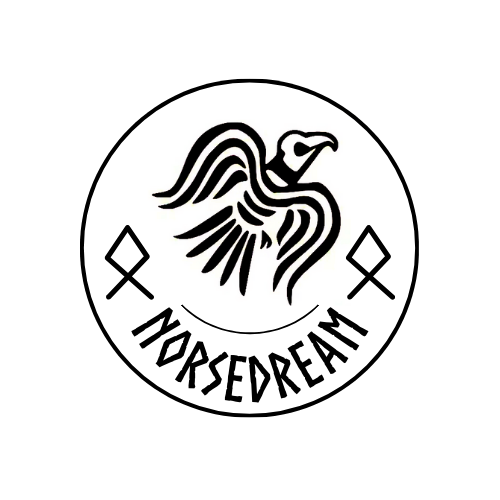In the Norse pantheon, Freyja shines as one of the most multifaceted and beloved figures. A goddess of the Vanir, she embodies beauty, love, fertility, magic, and war, weaving a complex tapestry of divine traits. Her name, meaning "Lady," reflects her esteemed status, not only among the gods but also among humans who called upon her for blessings, wisdom, and strength.
The Many Facets of Freyja
Freyja is often seen as the Norse goddess of love, but her influence extends far beyond romance. As a goddess of fertility, she ensures the cycles of life continue, blessing fields, families, and animals. Her presence is tied to abundance and the nurturing forces of nature. However, Freyja is not just a figure of gentle care; she also represents the fierce and independent aspects of womanhood.
As a goddess of war, Freyja is a chooser of the slain. She claims half of the fallen warriors from battlefields, taking them to her hall, Fólkvangr. The other half go to Odin’s Valhalla. This dual role underscores her balance between life and death, love and battle, tenderness and ferocity.
Freyja and Seidr Magic
Freyja is also a master of seidr, an ancient form of Norse magic involving prophecy and altering fate. It’s said that she taught Odin himself the art of seidr, demonstrating her unparalleled skill and knowledge. Through her magic, Freyja embodies the mystic and mysterious, guiding those who seek wisdom beyond the ordinary.
Symbols and Associations
Freyja’s chariot, pulled by two cats, symbolizes her connection to the natural world and her graceful yet powerful presence. She is often depicted wearing the Brísingamen, a magnificent necklace crafted by dwarves, representing wealth, allure, and divine authority. Her association with boars, particularly her companion Hildisvíni, further emphasizes her ties to fertility and protection.
Freyja’s Role in Mythology
Many myths highlight Freyja’s depth and complexity. One of the most famous stories involves her quest to reclaim her necklace, Brísingamen, from Loki. In another tale, she is sought after by giants, illustrating her irresistible charm and the envy her beauty inspired. Yet, Freyja is never portrayed as a passive figure; she negotiates, fights, and stands her ground, embodying resilience and agency.
Freyja in Modern Spirituality
Today, Freyja continues to inspire those who seek balance, empowerment, and connection to the sacred. She is revered by modern heathens and practitioners of Norse paganism as a goddess who represents both strength and vulnerability, reminding us that these traits can coexist harmoniously. Her dual nature—loving yet fierce, nurturing yet powerful—makes her a timeless symbol of divine femininity.
Honoring Freyja
To honor Freyja, one might:
- Light candles or offer flowers, especially those in gold or red hues.
- Work with cats or care for them in her name.
- Practice acts of love and kindness, reflecting her nurturing aspects.
- Engage in creative pursuits, such as crafting or writing, to celebrate her artistry.
- Meditate on her qualities of courage and independence, drawing strength from her stories.
Freyja’s legacy reminds us of the beauty and power within ourselves. Whether we call upon her for guidance in matters of the heart, strength in times of struggle, or wisdom in life’s mysteries, she stands as a luminous figure in the Norse pantheon, ever ready to inspire and empower.


